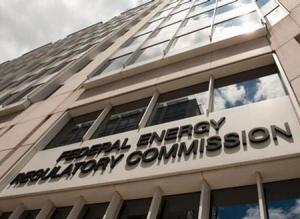Court: No Error by FERC in Issuing Certificate Before State Did

The U.S. Court of Appeals for the District of Columbia Circuit has dismissed a lawsuit that claimed the Federal Energy Regulatory Commission (FERC) put the cart before the horse in conditionally approving a proposed natural gas pipeline extension in the eastern part of Pennsylvania prior to the state assessing whether the project complied with Clean Water Act (CWA) certification requirements. According to the plaintiff, Delaware Riverkeeper Network (DRN), the FERC failed to follow the sequencing protocols set forth in the CWA. That is, DRN argued, the commission should not have granted Transcontinental Gas Pipe Line Company (Transco) a conditional certificate for the Leidy Southeast Project until after Pennsylvania had entered a finding that the Transco proposal met the standards listed under Section 401 of the CWA.
Delaware Riverkeeper contended that the CWA is very clear that obtaining CWA 401 approval from the state is a prerequisite for construction. The court, however, found that the FERC’s issuance of the conditional certificate did not violate any sequencing terms of the CWA because it had included explicit language in the permit that the certificate was contingent on Transco receiving CWA 401 authorization from Pennsylvania before it could proceed with the project.
As described by Transco, the Leidy extension would add about 30 miles of “looping” pipeline adjacent to existing transmission facilities in Luzerne and Monroe counties in Pennsylvania. The pipeline asserted that the new segments would augment its overall pipeline capacity and allow it to transmit more natural gas supply from the Marcellus Formation. The additional capacity was viewed as critical to its ability to meet rising demand in certain parts of Pennsylvania and New Jersey.
Transco’s initial application for construction authority was filed with FERC in 2013. As required by the National Energy Policy Act, FERC thereupon engaged in an environmental assessment (EA) relative to the project. That EA yielded very few and mostly minor adverse effects from the project, given that it largely follows the route of existing facilities. Nevertheless, the EA included a warning that because the Leidy project could result in discharges into navigable waters, Transco would have to obtain CWA 401 clearance from Pennsylvania before it could actually commence construction.
As instructed, the pipeline later submitted a Section 401 certification request with Pennsylvania’s Department of Environmental Protection (DEP). However, before DEP actually ruled on that request, FERC issued its final certificate of public convenience and necessity (CPCN) for the pipeline extension. Importantly, that CPCN, like the EA, contained a proviso that the CPCN would remain conditional until the requisite CWA 401 approval was granted by DEP.
Those explicit Section 401 references notwithstanding, DRN lodged its opposition to FERC’s grant of the CPCN, alleging that because the commission did not abide by the sequencing order established in the CWA, the certificate should be treated as invalid. Maintaining that FERC had acted unlawfully, Delaware Riverkeeper sought to have the CPCN nullified.
The court, deeming DRN’s arguments merely procedural rather than substantive, found that the FERC had acted within its authority and had not violated the CWA by issuing a certificate to Transco prior to Pennsylvania ruling on the pipeline’s Section 401 petition. In reaching that conclusion, the court emphasized the conditional character of the CPCN.
Highlighting the fact that the FERC had repeatedly cautioned Transco that neither the EA nor the CPCN allowed the pipeline to proceed with actual construction activity until it had received CWA 401 authorization from Pennsylvania, the court held that there was no infraction of the CWA’s sequencing provisions by the FERC. Rather, the court said, federal law confers upon the FERC discretion and flexibility to review project applications in different steps.
To that end, the court said that the conditional CPCN awarded by the FERC should be considered nothing more than a “first step.” As such, the court added, it is completely distinguishable from a “final step,” which would encompass a separate order to proceed with actual construction.
The instant appeal was not the only one that DRN has lost with respect to challenges of the FERC’s certificate activities. Just this past March, a federal district court dismissed a lawsuit filed by DRN in another pipeline CPCN docket, that one involving PennEast Pipeline Company (see Letter No. 4313). Delaware Riverkeeper Network et al. v. Federal Energy Regulatory Commission, No. 16-1092, May 23, 2017 (D.C.Cir.).



